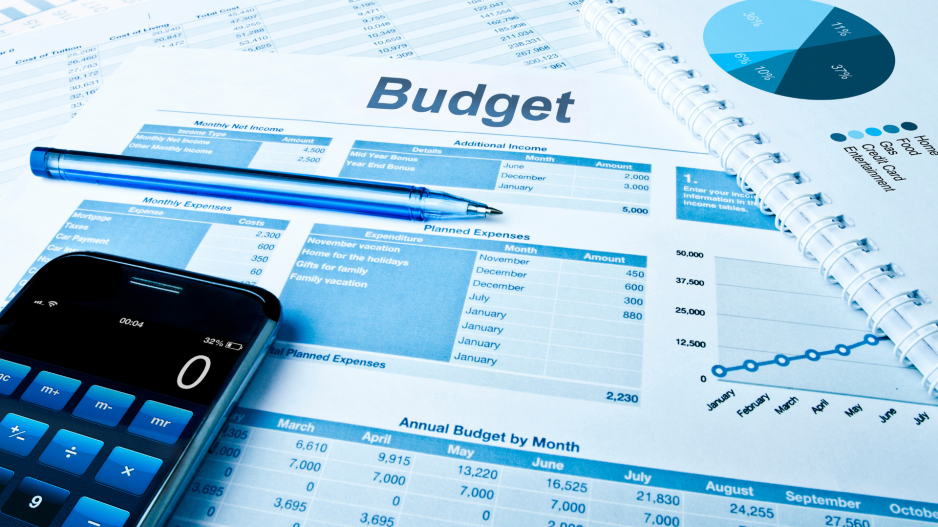The Ultimate Personal Budgeting Guide For 2025
Proven Strategies For Saving Money, Managing Expenses, And Reaching Your Goals
As we step into 2025, the importance of effective personal budgeting has never been clearer. With shifting economic landscapes, rising living costs, and an increasing focus on financial independence, having a well-thought-out budget is your ticket to financial security and peace of mind.
Whether you're just starting your financial journey or looking to refine your existing plan, this guide will help you master personal budgeting in 2025.
Before you create a budget, it’s essential to define your financial goals. Are you saving for a house, paying off debt, planning a vacation, or building an emergency fund? Clear goals give your budget purpose and direction. Break them down into short-term (3-12 months), medium-term (1-5 years), and long-term (5+ years) goals to stay focused and motivated. Writing these goals down can also help solidify your commitment to achieving them.
Knowledge is power, especially when it comes to your finances. Start by tracking your income—whether it’s from a salary, freelance gigs, or investments—and your expenses. Use budgeting apps, spreadsheets, or even a simple notebook to record everything. Categorize your expenses into fixed (rent, utilities) and variable (dining out, shopping) to identify where your money is going. Regularly reviewing these numbers will help you spot trends and areas where you can improve.
Before you build a financial plan of your own, it’s helpful to know that there are many different budgeting methods available. You can review the different types of budgets to decide which option seems best for you. Don’t be afraid to try multiple budgets until you find the right fit.
Below are some of the most popular types of budgets:
-
50/30/20: This 50/30/20 budget strategy is a framework that divides your income into three categories: 50% for essential needs like rent and groceries, 30% for non-essential wants like dining out, and 20% for savings or debt repayments. It’s a straightforward approach for those who value simplicity.
-
Zero-based budget: A zero-based budget is a money-management strategy that assigns every dollar you earn to a specific purpose, ensuring nothing is left unaccounted for. Whether it’s bills, savings, or discretionary spending, this method ensures you’re in total control of your finances.
-
Envelope budgeting: For those who prefer a tactile approach, the envelope budgeting system is an old-fashioned way of budgeting that involves dividing your monthly income into physical cash envelopes labeled for specific spending categories, such as gas, groceries, dining out, etc. Modern digital versions also exist, offering similar control in app form for cashless users.
-
Spreadsheet budget: If you prefer a highly tailored approach, creating a personal spreadsheet can provide full control over your finances. This option allows you to tweak categories and formulas to fit your unique financial habits and goals.
Make saving effortless by setting up automatic transfers to your savings account or investment portfolio. Treat your savings like a non-negotiable expense. In 2025, explore high-yield savings accounts or low-risk investments to make your money work harder for you. By automating this process, you eliminate the temptation to spend money meant for your future.
With inflation impacting purchasing power globally, it’s vital to adjust your budget accordingly. Monitor price trends for essentials and plan for increases in costs. Building a cushion in your budget can help you stay ahead of unexpected price hikes. Incorporating a flexible category for inflation-related adjustments ensures your budget remains realistic and effective.
Identify areas where you can cut back. Small changes like brewing coffee at home, canceling unused subscriptions, or opting for second-hand items can make a significant difference over time. Periodically review your spending to ensure it aligns with your goals and financial objectives.
An emergency fund is your financial safety net. Aim to save at least 3-6 months’ worth of living expenses. This fund should be easily accessible and separate from your primary savings to avoid temptation. Consider parking it in a high-yield savings account for easy access and to earn a bit of interest.
Leverage budgeting apps like YNAB (You Need A Budget), or PocketGuard to simplify the process. These tools provide insights into your spending habits, help set limits, and ensure you’re staying on track. Many apps also allow you to set financial goals and provide reminders to keep you accountable.
Budgeting isn’t just about saving, but also about growing your wealth. In 2025, consider diversifying your investments into stocks, bonds, or ETFs. Consult a financial advisor to develop an investment strategy that matches your risk tolerance and goals. Remember, investing is a long-term game, so patience and consistency are key.
Set aside time each month to review your budget, track your progress, and make adjustments as needed. Whether you get a raise, face unexpected expenses, or achieve a milestone, keeping your budget updated ensures it remains relevant. Regular check-ins also help reinforce good financial habits.
Creating a budget is just the first step; sticking to it is where the challenge lies. Here are some tips to help you stay disciplined:
-
Set realistic goals: Avoid overly restrictive budgets that leave no room for enjoyment. A sustainable budget is one that accommodates your lifestyle while prioritizing your goals.
-
Celebrate milestones: Reward yourself when you hit financial milestones, such as paying off a credit card or reaching a savings target. This positive reinforcement keeps you motivated.
-
Involve accountability partners: Share your budgeting goals with a trusted friend or family member who can encourage you to stay on track.
-
Avoid impulsive spending: Wait 24 hours before making non-essential purchases to ensure they align with your priorities.
-
Keep visual reminders: Use vision boards, apps, or trackers to remind yourself of your goals and progress.
Personal budgeting in 2025 is about more than just numbers; it’s about aligning your finances with your values and aspirations. By setting clear goals, staying disciplined, and leveraging modern tools, you can take control of your money and build a secure future. Start today, and let 2025 be the year you achieve financial empowerment!






